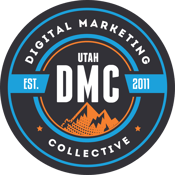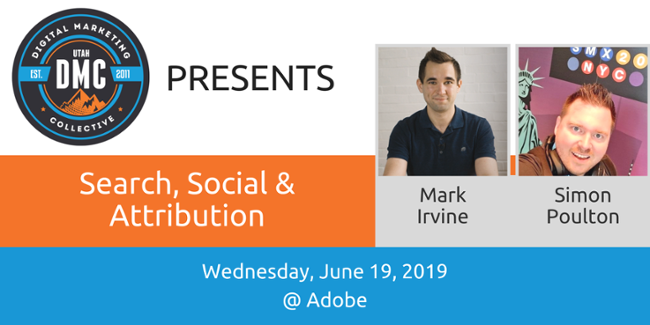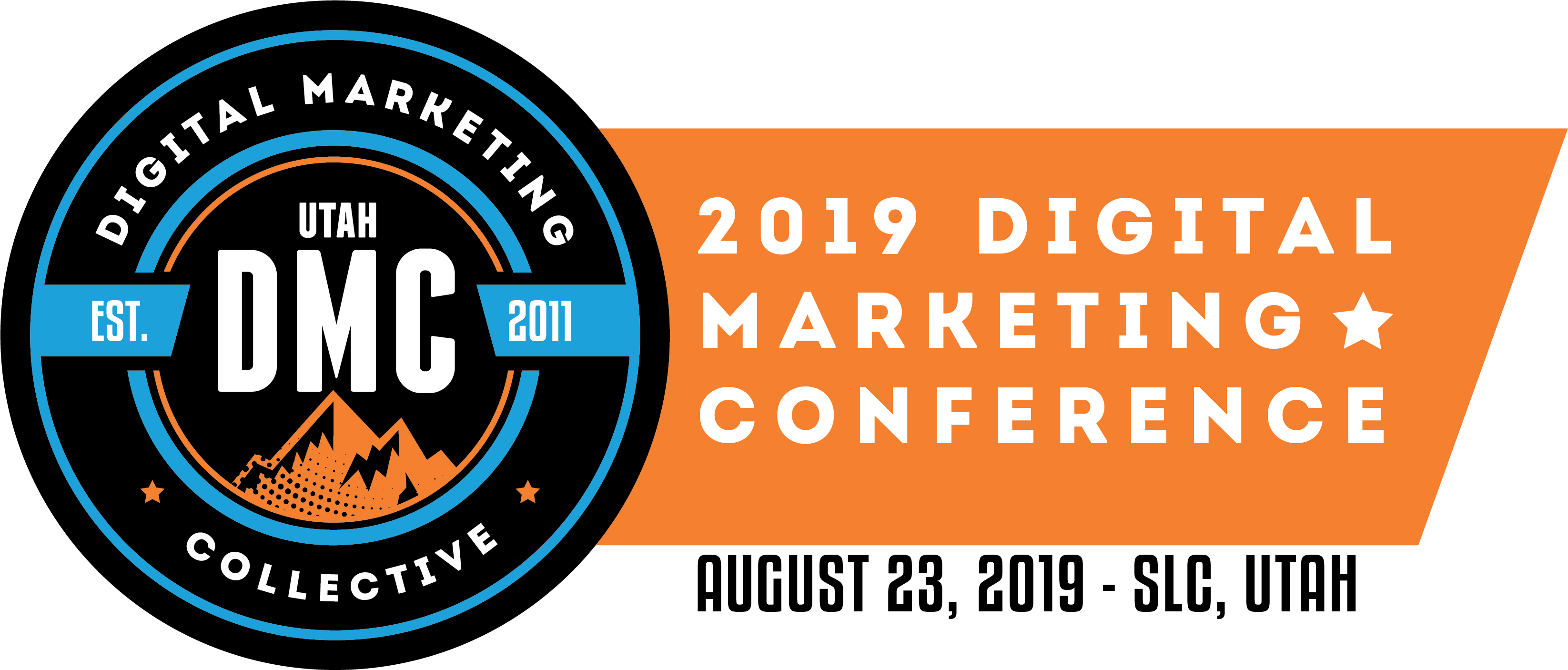Utah DMC or Digital Marketing Collective is an organization for digital marketers in Utah and the
surrounding areas. They strive to provide opportunities for continued learning, networking
opportunities, and training for those who are interested in furthering their marketing experience
and knowledge. This month, we had the opportunity to hear from Mark Irvine and Simon
Poulton. Mark Irvine is an extremely successful marketer who is responsible for creating
WordStream’s data-driven industry research, as well as analyzing and spotting data on Google,
Bing, and Facebook ad accounts. Simon Poulton is the current Vice President of Digital
Performance at Wpromote where he oversees Analytics Development, Data Analysis, Data
Science, and Solution Architecture team.
Search Social and Attribution- Mark Irvine
As a business, most people know that using social media platforms, and the internet in general,
are excellent ways to advertise for your company and drive traffic to your website. But the
question arises, “Should I be advertising on Google AdWords or Facebook ads?” and “Which
has the better ROI, network, audience, etc.?”
Normally, people will jump right in and start thinking about the 207 million active Facebook users
and consider that their best route. But by doing this, they will forget about the 246 million users
on Google. Although Facebook users visit the site about 14 times a day, which is more than any
other site, and spend an average of an hour on Facebook a day, they are not the only platform
you should focus on. With the search and social aspects of today, they work better together than
ever before. Today we are seeing more integration within the products than we ever have
before.
The United States is what we would call “bi-searchable.” This means that most people are using
Google, but these same people are also using Bing. Just like people who are using Youtube are
also using LinkedIn. So why not advertise on both? The best way to advertise to potential
customers is to not only make advertising possible on different devices, but also on different
platforms. With Facebook being in front of a user’s face at least 14 times a day, we will see the
conversion rate grow at least 60%, and by advertising on Bing as well, we will see a 26%
increase.
When someone’s alarm goes off in the morning, they are very likely to hit snooze and then start
scrolling through their social media accounts to check up on the posts that they missed while
they were sleeping. Last week there was a video of an easier and faster way to peel garlic that
got several million views in just a couple hours. When a topic is trending on a social media
platform, we see search volume for that topic double within an hour and within six hours we see
that search volume increase fivefold.
When we see results and data so supportive of intertwining both social and search engines
together, it only makes sense that both would be useful in creating a successful marketing
platform for a client.
Democratizing Attribution- Simon Poulton
Simon Poulton is the VP of Digital Intelligence at Wpromote located in El Segundo, California.
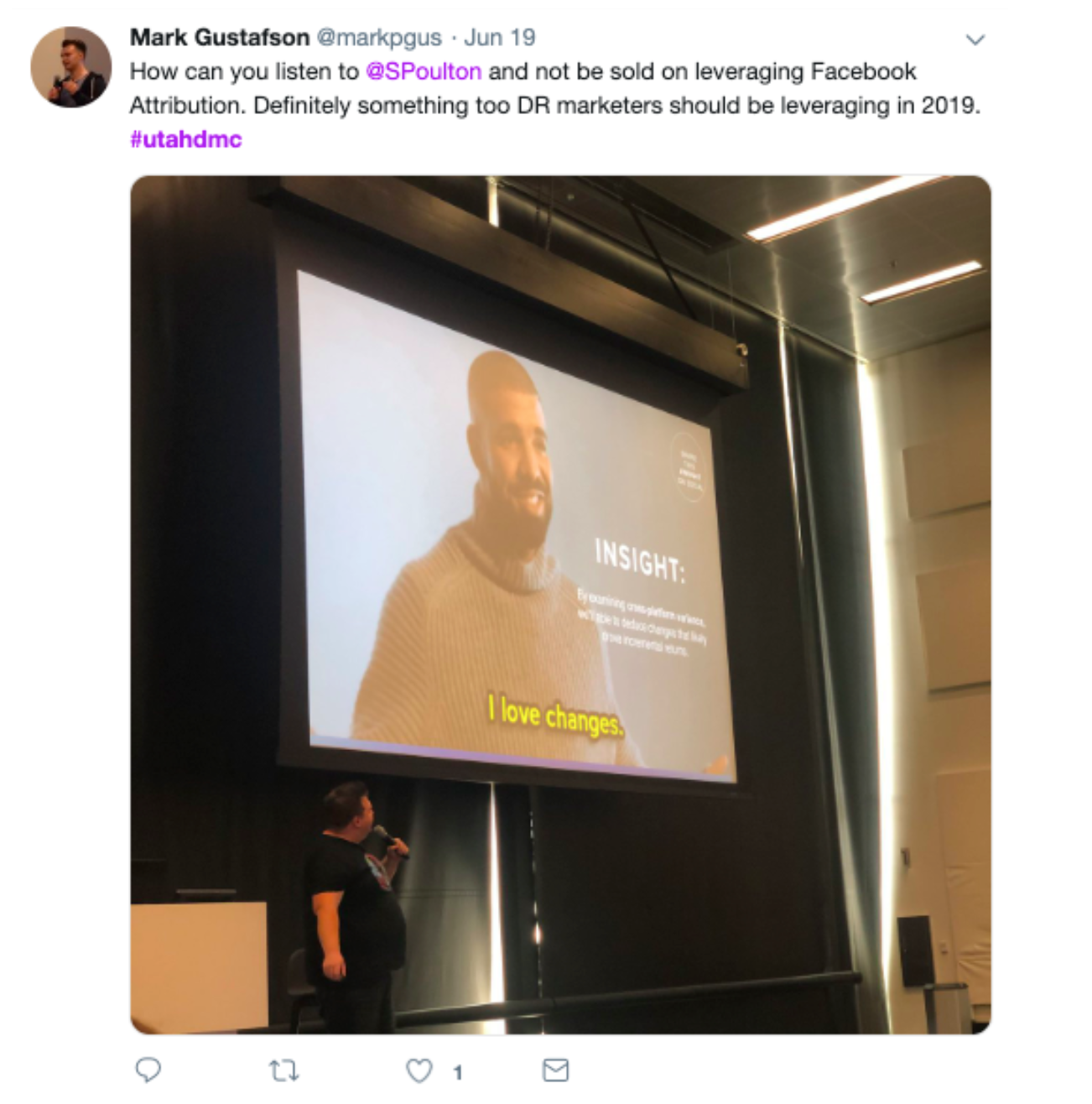
Simon exerted a passion for Attribution, and you can really tell he cares about its future and
where it is headed. One of the more interesting areas that Simon touched on was the importance of Shapley Values. In layman's terms, Shapley Values play an important role in Game Theory and in the Marketing realm. Shapley Values in the Marketing industry refers to how we can pinpoint which touchpoint's actually lead to conversion in the customer journey, rather than relying on first-click, last-click, position-based, and other models.
takeaways from his presentation are:
- We will never achieve 100% attribution
- Cookies will soon be deleted within a day making it almost essential to use User-Based Attribution Models
- It is best to use a time-decay attribution model if a data-driven model is out of reach
- We must move away from cookie-based tracking and invest in people-based tracking
- User-Journey Mapping is valuable now more than ever
- Because of the need for people based tracking, we need to keep the user’s privacy in mind
- Some channels require more touch points than other
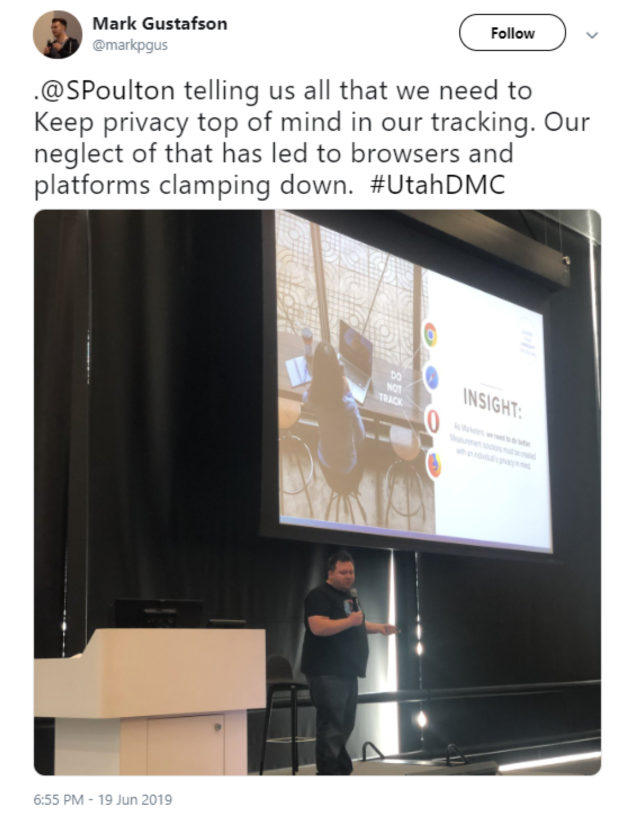
Overall, we had a wonderful night learning from Mark Irvine and Simon Poulton. If you haven’t
been to a DMC event yet, we highly encourage you to go! It is a great way to network, learn,
and see just how big the Digital Marketing Industry in Utah really is! We will see you for the next
recap on SEO night in July!
